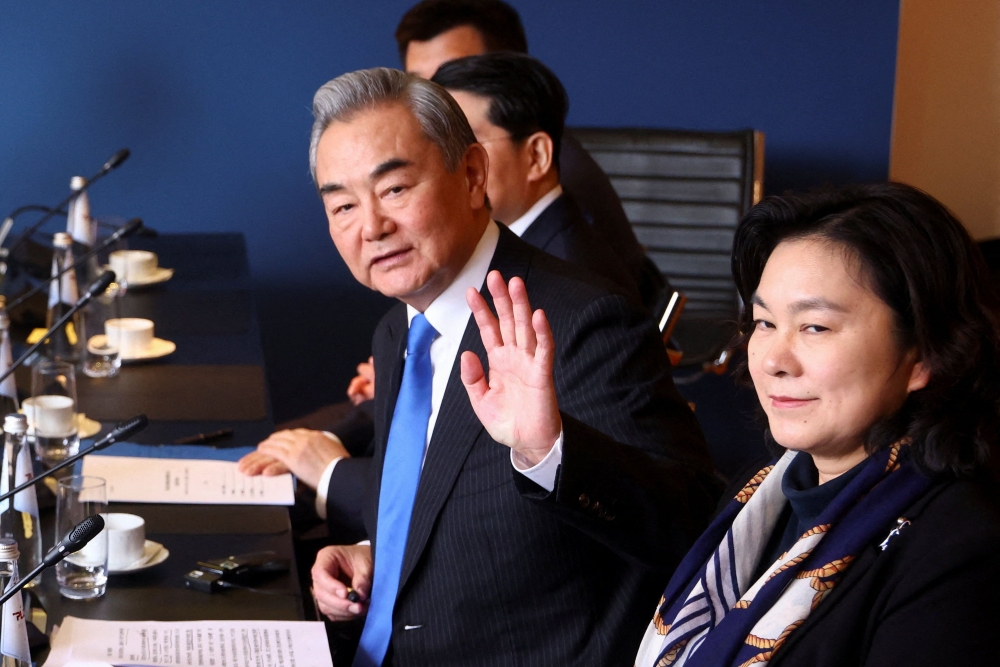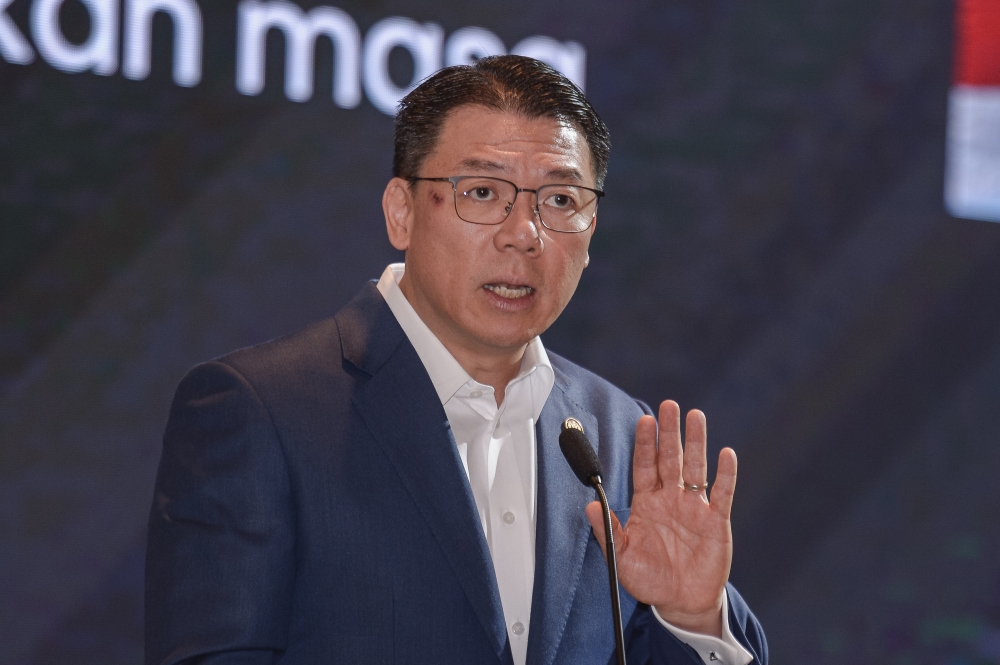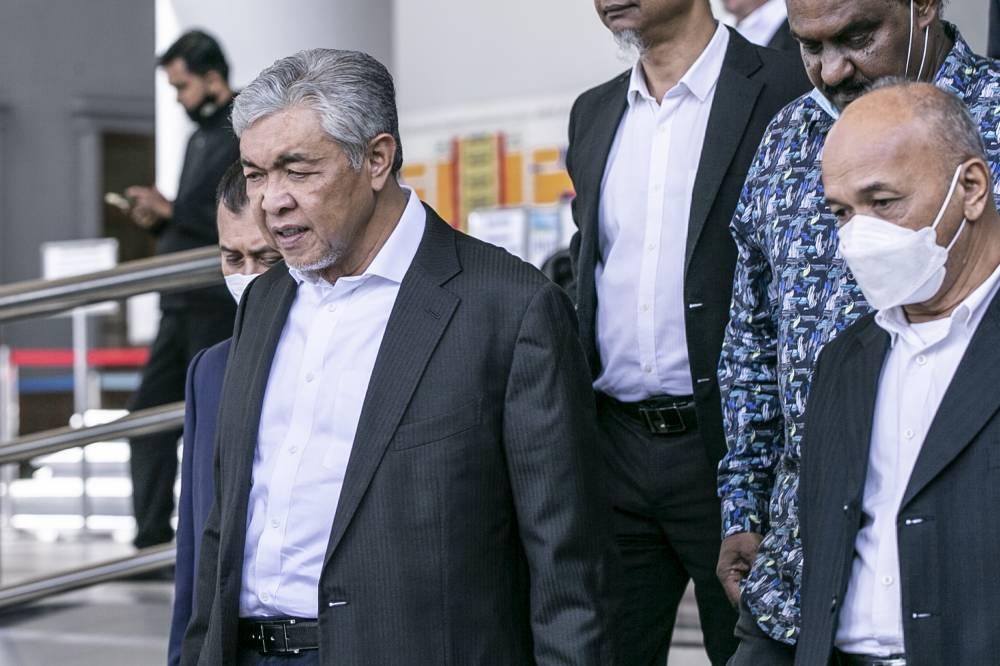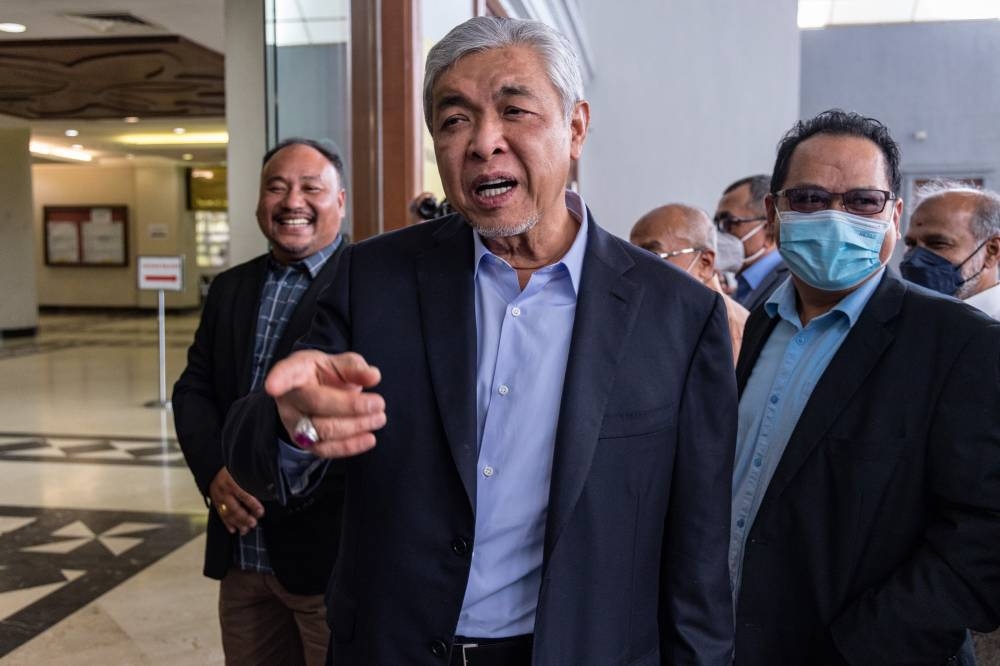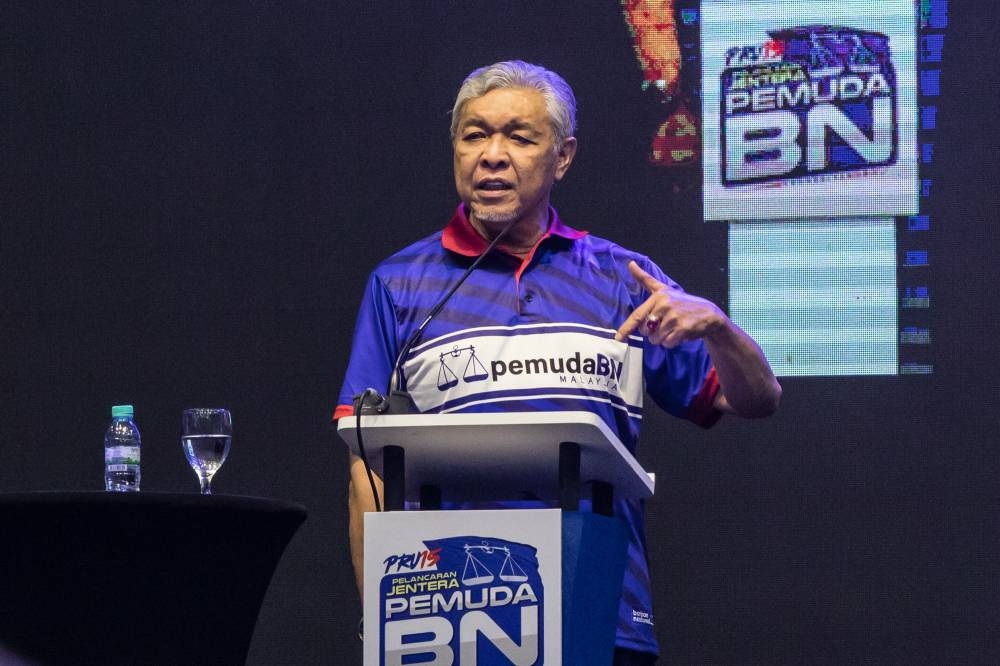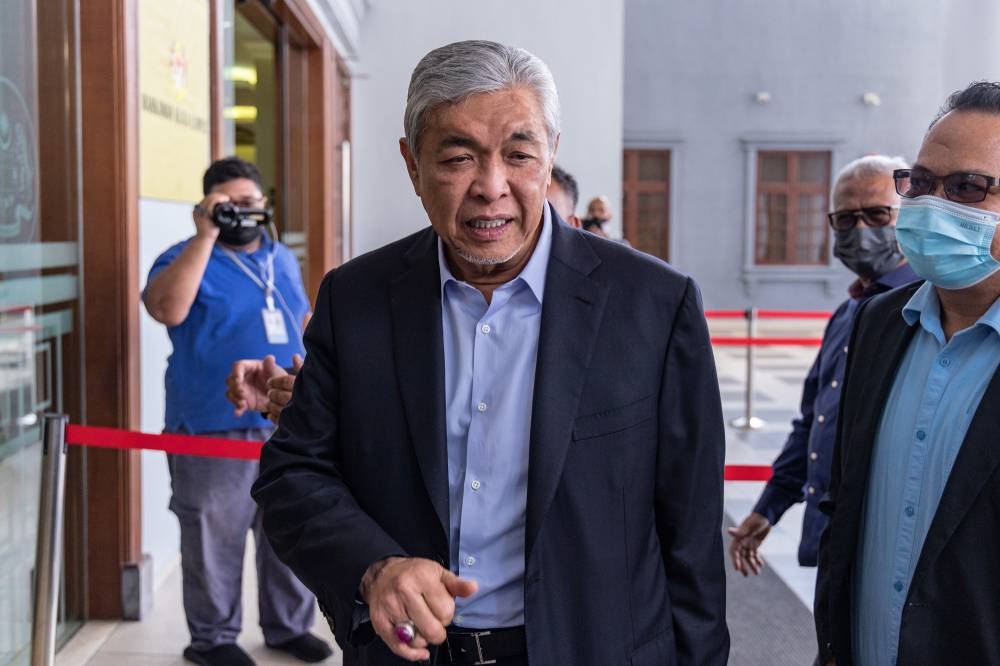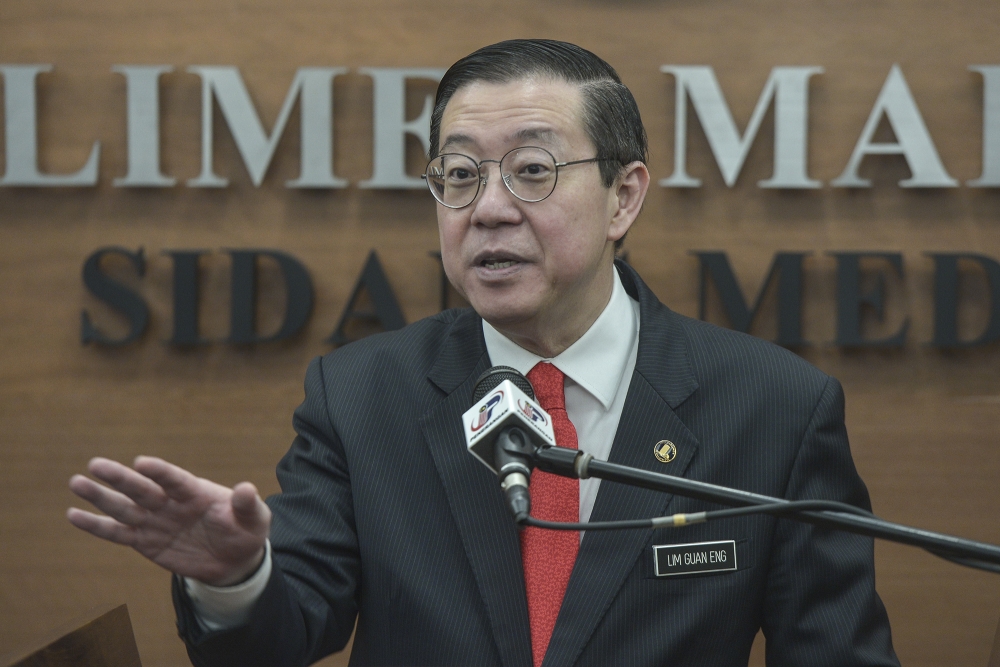KUALA LUMPUR, Sept 22 — The High Court today allowed the prosecution to start proceedings in its bid to impeach a defence witness who was testifying in Datuk Seri Ahmad Zahid Hamidi’s favour.
In other words, the prosecution was allowed to start court proceedings to challenge the credibility of this witness over inconsistencies in what he had told the Malaysian Anti-Corruption Commission (MACC) previously and over what he had told the court today.
After hearing arguments from both the prosecution and Zahid’s lawyer, High Court judge Datuk Collin Lawrence Sequerah decided that the prosecution could start impeachment proceedings against Zahid’s third defence witness Jefri Jamil.
“The ruling of this court is that Section 155 of the Evidence Act allows impeachment under circumstances set out in this Act, and these sections do not allude to whether the documents are classified as OSA (Official Secrets Act) or otherwise. So the ruling of this court is I will allow impeachment proceedings to commence,” the judge said.
Under Section 155, a witness may be impeached through the showing of proof that the witness’s former statements are inconsistent with any part of his evidence. Section 155 did not specify the nature of such statements.
Earlier, the 38-year-old Jefri who is the director of construction contractor Teknik Sempurna (M) Sdn Bhd read his witness statement in court and also answered questions from Zahid’s lawyer Aiman Abdul Rahman during examination-in-chief and answered questions from the prosecution during cross-examination.
Jefri was testifying as the third defence witness for Zahid in the latter’s trial involving 47 charges revolving around alleged corruption by allegedly receiving bribes, alleged criminal breach of trust of Yayasan Akalbudi’s funds and alleged money laundering.
After Jefri said he did not recall what he had told the Malaysian Anti-Corruption Commission (MACC) in the past when his statement was recorded, lead prosecutor Datuk Raja Rozela Raja Toran informed the High Court that the prosecution wishes to initiate impeachment proceedings against this witness.
The prosecution’s bid to impeach Jefri is based on contradictions between what he had told the MACC during investigations and what he had told the court today during Zahid’s trial.
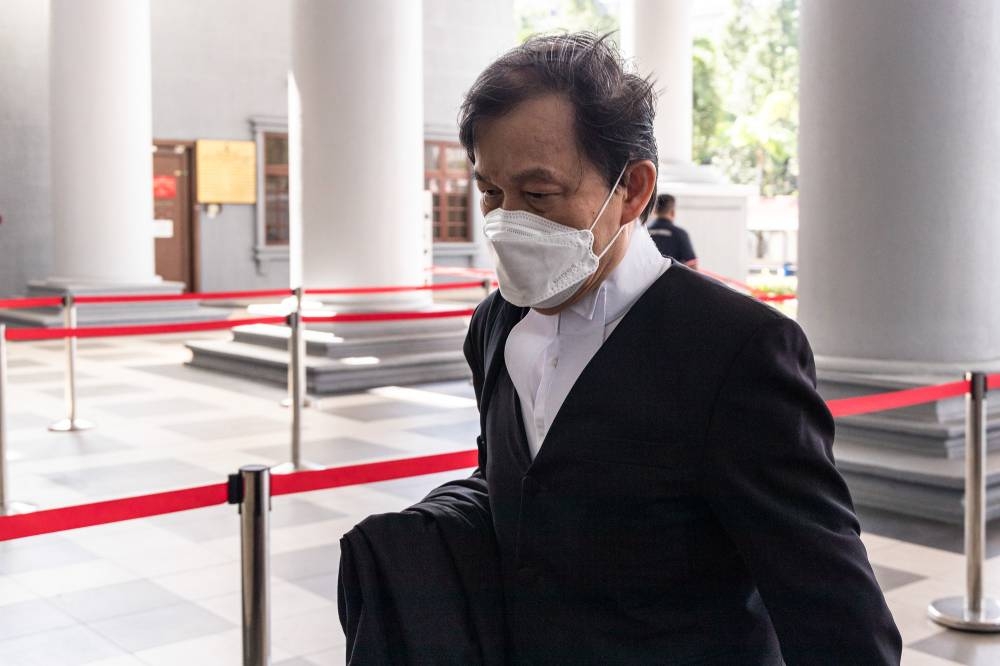
Zahid’s lawyer Datuk Hisyam Teh Poh Teik then objected to the prosecution’s application to start impeachment proceedings against Jefri, noting that Zahid’s legal team had previously asked for Jefri’s statement to the MACC to be provided and that the prosecution had classified such documents under the Official Secrets Act.
“So under these circumstances, I think the application by my learned friend cannot stand. These papers have now been classified under OSA, official secrets,” he argued.
Arguing that the prosecution cannot be “blowing hot and cold”, Hisyam said it would be unfair for the prosecution to object to and deny Zahid’s lawyers access to the MACC statements by citing OSA, and for the prosecution to be able to rely on the MACC statements when it suits the prosecution.
Raja Rozela pointed out that Section 155 allows a witness to be impeached if his court testimony is inconsistent with a former or previous statement, and argued that Zahid’s lawyers’ previous bid to gain access to the MACC statements is a different matter from the impeachment bid.
“It is wrong to say we are blowing hot and cold, because the action we are taking is governed by two separate provisions of the law, we are entitled to initiate the impeachment proceedings, if Your Lordship would allow us to do so, upon finding that there is a material discrepancy in the statements,” she said.
Hisyam argued the prosecution would not be able to refer to the classified MACC statements to impeach Jefri unless they declassify those documents first, noting: “I’ve been saying under the Evidence Act, impeachment can commence, but because of the unique nature of stance taken by the prosecution in making the classification, they are caught by their own act.”
Raja Rozela however argued that whether the documents are declassified is irrelevant and is a separate matter to the impeachment bid.
After hearing both sides, the judge then allowed the prosecution to start the proceedings to impeach Jefri.
This does not mean that Jefri has already been impeached or has become a witness who is not truthful or not credible.
For situations such as Jefri’s case, impeachment proceedings typically involve the determining of whether there were material contradictions in what he had previously said and what he was telling the court, and could result in the witness then being given a chance to explain the contradictions before the court decides if the explanations are satisfactory or if the witness is impeached.
Raja Rozela highlighted two portions in Jefri's statement to the MACC — currently classified under the OSA — to the judge, saying that these two portions contradicted what Jefri had testified in court today.
The first portion was Jefri's witness statement in court where he said his company Teknik Sempurna had received cheques from Yayasan Akalbudi for the construction of the floating mosque Masjid Salmah Khamis in Masjid Tanah, Melaka while he had referred to the cheque as a Maybank Islamic cheque in the statement to MACC.
The second portion was where Jefri had today told the court that he had once personally sent an invoice — to claim for payment for construction work on the mosque — to Zahid's then executive secretary Major Mazlina Mazlan @ Ramly, while Jefri had previously told the MACC that he had nothing to do with the submission of such claims.
After taking time to compare Jefri's statement to the MACC and his testimony in court today, the judge decided there was material differences between both.
"This is my ruling, after reading the portions underlined in red, the statement to MACC, and comparing to the evidence in the witness stand, I find there is a material contradiction, the proceedings can commence," the judge said.
Hisyam then said there should be a fair trial and that Zahid's legal team can only participate in the impeachment proceedings if they are given a copy of Jefri's statement to the MACC.
Raja Rozela then examined the two issues for the impeachment proceedings, including whether Jefri's statement to the MACC which was shown to the judge could also be given to Zahid's lawyers.
She said that after the judge had ruled that there were material contradictions, the next step would be to refer the matter to Jefri and establish whether he had made the statement to the MACC previously.
"If he says 'yes', then this statement shall be marked as an exhibit. Because of that, once we have marked it as court exhibit, then naturally one copy should be given to the defence," she said.
As for the second issue of whether Zahid's lawyers can participate in the impeachment proceedings, Raja Rozela cited a past High Court judgment when saying that it is for the court to ask the witness to explain the differences in his previous statements and in his court testimony.
"The prosecution should not, must not participate in that proceeding, must not proceed to cross-examine the witness based on explanation he has given to the court. And likewise the defence ought not to be allowed to participate.
"So this is just a matter between the witness and the court, to get explanation, to be satisfied whether or not the witness has properly explained why the discrepancies, or why the difference in what he said in court and otherwise. And the matter stops there.
"Once the explanation is given by the witness, Your Lordship will reserve the ruling whether or not the witness's credibility is impeached at the end of the trial. In other words, My Lord, it does not cater for any participation from either parties," she said when stressing neither Zahid's lawyers or the prosecution should be taking part in the impeachment proceedings between the judge and Jefri.
But Raja Rozela also said that in practice, the court itself could either ask the witness to explain the differences or the court could ask for help from the party — which wished to impeach the witness — to ask the witness for the explanation.
Raja Rozela had relied on the High Court's 1947 judgment in the case of Muthusamy v Public Prosecutor to argue the two points, by citing the procedure for impeachment proceedings which was outlined in the judgment.
Hisyam requested time to carry out research before presenting arguments, noting that the two questions posed by the prosecution are closely related to OSA.
He said this was an interesting point that should be researched in detail, as it was the first time in his career that he had come across documents that are both classified under OSA but are also relied on for impeachment proceedings at the same time.
While noting that the OSA issue would not arise if both sides are not actively involved and only the court is involved in the impeachment proceedings, the judge allowed Zahid's lawyers time to carry out research and present their submissions or arguments at the next court date.
In this trial, Zahid is facing 47 charges, namely 12 counts of criminal breach of trust in relation to RM31 million of charitable foundation Yayasan Akalbudi’s funds, 27 counts of money-laundering, and eight counts of bribery charges over the receiving of RM21.25 million in alleged bribes.
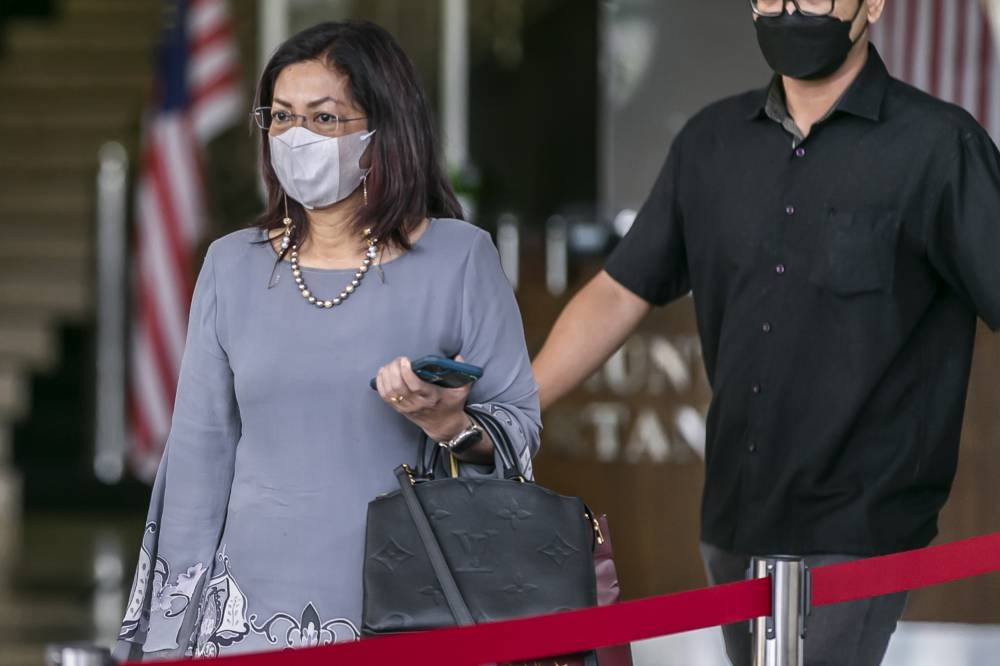
Datuk Suriani Ahmad, who was the deputy secretary-general in the Home Ministry from 2015 to 2017 when Zahid was home minister, today testified as the fourth defence witness.
The prosecution recorded its objection to paragraphs 21 to 40 of Suriani's written witness statement — which criticised Zahid's former executive secretary Major Mazlina Mazlan @ Ramly — by citing Section 153 of the Evidence Act, with the court to deal with these objections at the end of the trial.
The prosecution also raised objections to paragraphs 42 to 48 of Suriani's testimony and questioned how these paragraphs could be relevant to Zahid's trial, as the donations that Suriani said Zahid had made — including 1,000 copies of Al-Quran — had taken place in 2018 which was after the events in this trial. The judge said he would not make any ruling on this objection at this point of the trial.
Suriani is expected to return to the witness stand at the next court proceedings to be cross-examined by the prosecution.
The trial is scheduled to resume on October 31 and will continue on until November 3, and is also scheduled to be heard on November 9 and 10.






